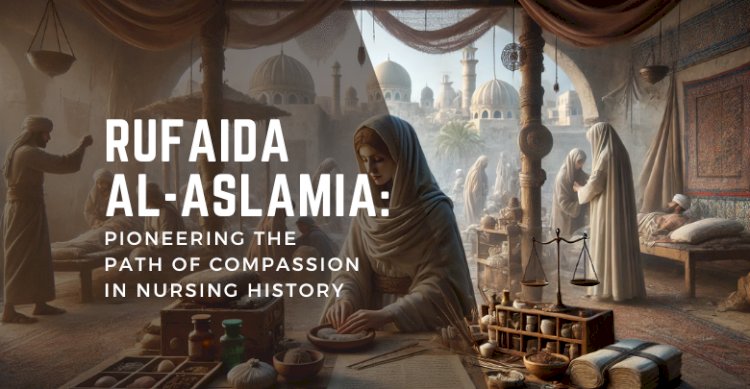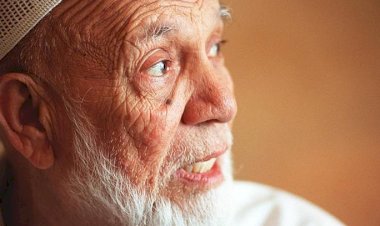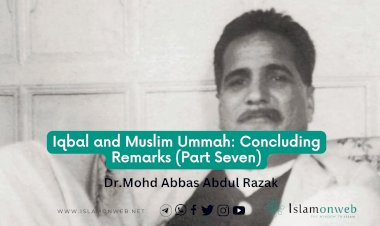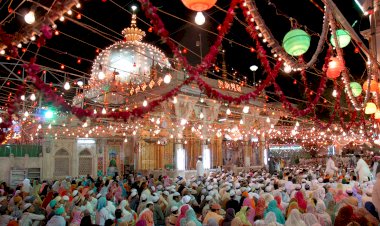Rufaida Al-Aslamia: Pioneering the Path of Compassion in Nursing History
Recent years have once again demonstrated the tremendous worth of healthcare professionals. The covid-19 pandemic highlighted their indispensable role in preserving lives, as millions of medical professionals around the globe labored assiduously. As a global community, we must recognize and appreciate the sacrifices made by these individuals, not just during emergencies but consistently. These crises have underscored the importance of acknowledging the efforts and contributions of healthcare workers.
In light of this, we bring you the inspirational and relatively uncommon account of Rufaida Al-Aslamia, a Muslim woman who was a close companion of Prophet Muhammad (PBUH) and who founded the first Islamic health centre in Medina.
Arab Muslim pioneers in medicine were not only physicians and surgeons; Arab nurses played crucial roles, too. One of the most prominent names in nursing in early Islamic period is Rufaida bint Saad Al-Aslameya, the first nurse in the Islamic and Eastern worlds. She was a pioneer in medical nursing and initiated the palliative care system in history. Rufaida utilized her clinical talents and medical knowledge to construct the first-ever recorded mobile care units, which successfully serviced the medical requirements of the community. Her work primarily focused on hygiene and stabilizing patients before subsequent, more invasive medical treatments. However, modern historians often overlook this golden page of history.
It is confirmed that she had a tent in the Prophet's Mosque where she treated the wounded. Al-Bukhari narrated in "Al-Adab Al-Mufrad" (1129) and Ibn Sa'd in "Al-Tabaqat" (3/427) from the hadith of Mahmoud ibn Labid (may Allah be pleased with him), who said: "When Sa'd's medial arm vein was injured on the day of the Battle of the Trench and it became severe, they moved him to a woman called Rufaidah, who used to treat the wounded. The Prophet (peace and blessings be upon him) used to visit him and ask, 'How are you this evening?' and 'How are you this morning?' and Sa'd would inform him."
Rufaidah Al-Aslamiyyah was also mentioned by Ibn Abdul Barr in "Al-Isti'ab" (3340), Ibn Al-Athir in "Usud Al-Ghabah" (6925), and Ibn Hajar in "Al-Isabah" (8/135). They all noted that she had a tent where she treated the wounded. It was also said that her name was Ka’iba bint Sa’d Al-Aslamiyyah, as stated by Ibn Sa'd in "Al-Tabaqat" (8/291).
Rufaida Al-Aslamia built the first healthcare centre near the Masjid al-Nabawi in Medina during the time of Prophet Muhammad (PBUH). Her distinction as Islam's inaugural female surgeon and nurse is universally acknowledged. While Florence Nightingale is often credited in Western literature as the pioneer of modern nursing, Rufaida held this title 1200 years before Nightingale. Under her stewardship in the early days of Islam, the concept of establishing the first known Islamic care centre arose, along with her groundbreaking contributions to the field. Despite the significant impact of her work, Rufaida’s services and determination to care for patients are often disregarded by the modern world.
Not much detail is recorded by narrators about Rufaidah’s life. However, it is likely that she was born in Yathrib, which was later named Al-Madinah Al-Munawarah, where her tribe and family lived. She resided there until the Prophet Muhammad (peace be upon him) and his companions migrated to the city. Rufaidah converted to Islam and pledged allegiance to the Prophet after the migration. She was among the first people in Medina to embrace Islam. Ibn Sa'd Al-Baghdadi mentioned her in "Naming the Strange Muslim Women Who Pledged Allegiance," and Ibn Habib cited her in "Women of Banu Zuhrah Who Pledged Allegiance," based on Al-Waqidi's account. Some sources note that she was among the women who welcomed the Prophet upon his arrival in Medina. All who wrote about her mentioned that she had a tent where she treated the wounded. Ibn Hazm Al-Andalusi said: "Rufaidah Al-Aslamiyyah was a righteous woman who tended to the sick and treated the wounded." Rufaida sought permission from the Prophet (PBUH) to accompany him to the battlefield to treat injured soldiers, which he granted. She participated in the famous battles of Khandaq and Khybar, where she played a vital role in treating wounded soldiers and addressing social concerns due to diseases within her community. She also educated other women interested in nursing and building a healthcare system.
Medical Assistance in Battle Field
Historians noted her first participation in battles during the Prophet's era was at the Battle of the Trench. She had a tent in the Prophet's Mosque equipped with bandages, medicines, herbs, and cotton to treat the sick and wounded. Rufaidah personally took charge of serving those among the Muslims who were in need. When Sa’d bin Mu’adh was struck by an arrow during the Battle of the Trench, the Prophet ordered the companions to move him to Rufaidah's tent. The Prophet used to visit her tent to check on the wounded and inquire about Sa’d bin Mu’adh's condition. As narrated by Asim bin Umar from Mahmoud bin Labid: "When Sa’d's medial arm vein was injured on the day of the Battle of the Trench, it was said: Move him to a woman called Rufaidah, who used to treat the wounded. The Prophet (peace be upon him) used to pass by him and say: 'How are you this evening?' and in the morning, 'How are you this morning?'"
Ibn Ishaq mentioned: "The Prophet (peace be upon him) had Sa’d bin Mu’adh placed in a tent of a woman from the tribe of Aslam called Rufaidah, in his mosque, where she tended to the wounded. She personally took charge of serving those among the Muslims who were in need. The Prophet (peace be upon him) had said to his people when Sa’d was struck by the arrow during the Battle of the Trench: Place him in Rufaidah’s tent so I can visit him up close."
Rufaidah participated in the Battle of Khaybar, where the Prophet granted her a warrior's share of the spoils. This is mentioned by Al-Waqidi and Ibn Abdul Barr.
Medica Practice and Training
Rufaida inspired other Muslim women to engage in social work and trained them, including the wives of Prophet Muhammad (PBUH), in patient care. Using her expertise in clinical practice, she educated women like Hazrat Ayesha to become nurses and healthcare professionals. In her dual role as a social worker and healthcare advocate, she contributed to resolving disease-related societal issues and aided the impoverished, orphans, and needy children. Her team, engaged in Muslim battles, provided care for injured soldiers, establishing the first palliative care system in the world. They treated many poor and underprivileged people, training them in nursing.
Born into a family with significant medical links, Rufaida's father, S'ad Al-Aslami, was a physician under whom she initially gained clinical experience. She dedicated herself to nursing and caring for ailing patients, renowned for stabilizing patients and ensuring appropriate hygiene before more invasive procedures. She enhanced her expertise through practical fieldwork and demonstrated valour by employing her knowledge on the battlefield. Throughout engagements with Makkan tribes, including the Battle of Al-Khandaq and the Battle of Khaibar, she attended to wounded soldiers.
Writer Muhammad Hamid Muhammad, in his book on Sahabiyyath (female companions of the Prophet (PBUH), mentioned that Rufaidah would enter battlefields, carry the wounded, dress their wounds, provide first aid, stay up to ensure their comfort, and console them. She transported her necessities and medical supplies on camels to the battlefields, setting up her tent in front of the Muslim camp. She formed a team of nurses who divided their duties to care for the patients, funded this from her own wealth and was skilled in surgery. When she saw the arrow embedded in Sa’d bin Mu’adh's medial arm vein, she quickly stopped the bleeding and left the arrow in place to prevent further bleeding. She is described as "the owner of the first medical tent in history."
Rufaida Al-Aslamiya ran the first palliative care system in the world. The World Health Organization defines palliative care as "an approach that improves the quality of life of patients (adults and children) and their families who are facing problems associated with life-threatening illness." During peacetime, Rufaida maintained her humanitarian work, assisting Muslims in need and supporting children, orphans, disabled people, and the homeless. She spent her life caring for the sick and dying and providing health information to the residents of her city. History records that Rufaida provided shelter to dying people from the desert wind, offering them great consolation.
The Islamic world has acknowledged the legacy of Rufaidah Al-Aslamiyyah, with numerous schools, streets, and educational institutions across the Islamic world bearing her name. In Jordan, the "Rufaidah Al-Aslamiyyah College of Nursing and Midwifery" in Russeifa is a testament to her pioneering spirit. The Arab Organization for Red Crescent and Red Cross honours her memory with the "Rufaidah Al-Aslamiyyah Medal," and the Royal College of Surgeons in Ireland, in collaboration with the University of Bahrain, awards the "Rufaidah Al-Aslamiyyah Award" to an exceptional student annually. These accolades, among many others worldwide, ensure that her contributions to healthcare and compassion for humanity are remembered and celebrated, inspiring future generations to follow in her footsteps.
References
- The Untold Story of Rufaida Al-Aslamia [Link: The Honest Publishing]
- Rufaida Al-Aslamia [Wikipedia]
- Meet Rufaida Al-Aslamia, a Medical Pioneer Who Impacted Healthcare & Social Work [hautehijab.com]
- Rufaida bint Saad Al-Aslameya: The First Muslim Nurse [bibalex.org]
- Al-Adab Al Mufrad
About the Author: Muhammed Nihal K is a first-year degree student in the Department of Civilizational Studies at Sabeelul Hidaya Islamic College, Parappur, Kerala, India. He is from Karippur, Malappuram.
Disclaimer
The views expressed in this article are the author’s own and do not necessarily mirror Islamonweb’s editorial stance.
























Leave A Comment